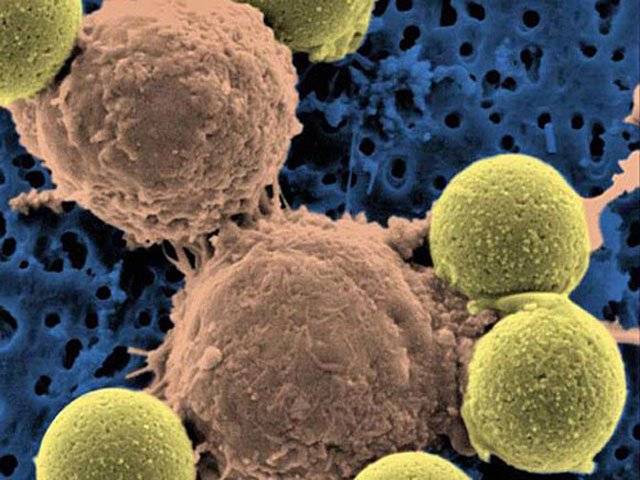IN a potential breakthrough in cancer research, scientists at the University of Pennsylvania have genetically engineered patients T cells - a type of white blood cell - to attack cancer cells in advanced cases of a common type of leukemia. Two of the three patients who received doses of the designer T cells in a clinical trial have remained cancer-free for more than a year, the researchers said. Experts not connected with the trial said the feat was important because it suggested that T cells could be tweaked to kill a range of cancers, including ones of the blood, breast and colon. This is a huge accomplishment - huge, said Dr. Lee M. Nadler, dean for clinical and translational research at Harvard Medical School, who discovered the molecule on cancer cells that the Pennsylvania teams engineered T cells target. Findings of the trial were reported Wednesday in two journals. To build the cancer-attacking cells, the researchers modified a virus to carry instructions for making a molecule that binds with leukemia cells and directs T cells to kill them. Then they drew blood from three patients who suffered from chronic lymphocytic leukemia and infected their T cells with the virus. When they infused the blood back into the patients, the engineered T cells successfully eradicated cancer cells, multiplied to more than 1,000 times in number and survived for months. They even produced dormant memory T cells that might spring back to life if the cancer was to return. On average, the team calculated, each engineered T cell eradicated at least 1,000 cancer cells. Side effects included loss of normal B cells, another type of white blood cell, which are also attacked by the modified T cells, and tumor lysis syndrome, a complication caused by the breakdown of cancer cells. LA Times
Friday, April 26, 2024
'Huge results raise hope for cancer breakthrough

Vloggers Shiraz, Muskan cross 2m followers on Instagram
12:27 AM | April 26, 2024
Achakzai stresses collective wisdom to address country's crises
12:27 AM | April 26, 2024
IHC puts off cipher case hearing until April 30
12:26 AM | April 26, 2024
Nawaz Sharif convenes PML-N Punjab meeting tomorrow
12:25 AM | April 26, 2024
ECP reinstates PTI-backed MNA from NA-81 Gujranwala
12:24 AM | April 26, 2024
Academic Uprising
April 24, 2024
Cooperation Momentum
April 24, 2024
Facing Reality
April 24, 2024
Absent Academia
April 23, 2024
Murree’s Redemption
April 23, 2024
Ending animal suffering
April 25, 2024
AI governance
April 25, 2024
AI concerns
April 25, 2024
Population paradox
April 24, 2024
Unveiling differences
April 24, 2024
ePaper - Nawaiwaqt
Advertisement
Nawaiwaqt Group | Copyright © 2024





